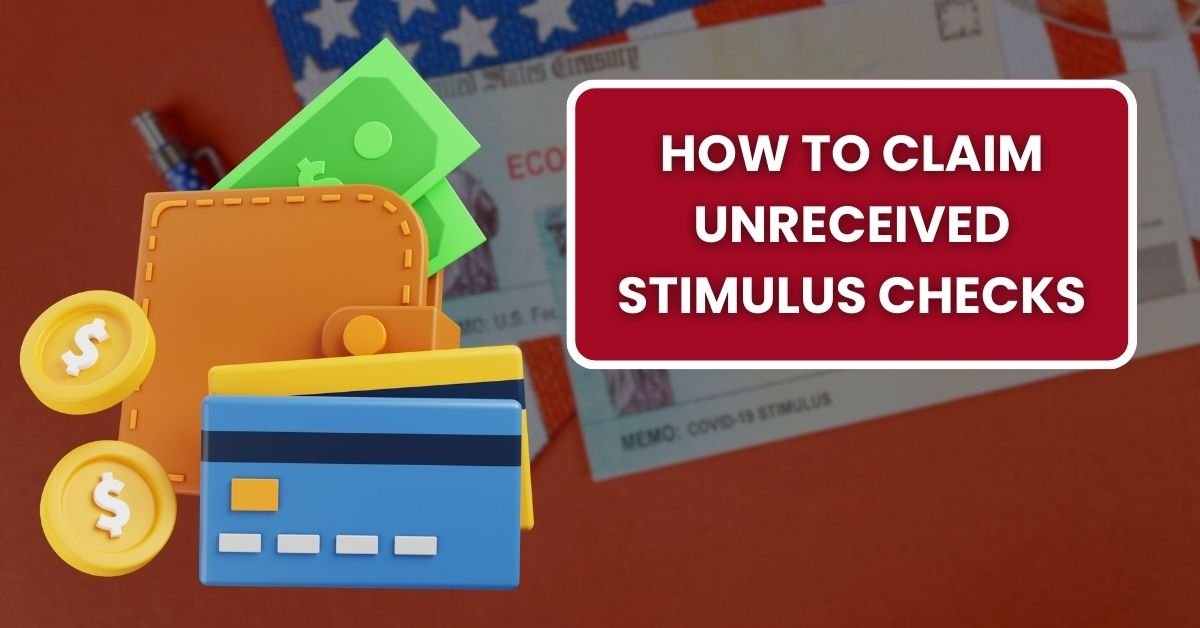During the COVID-19 pandemic, many families and individuals in the United States received stimulus checks from the federal government. These payments also helped provide the badly needed financial relief against the rising cost of living and the loss of income resulting from the health crisis. But not everyone was able to claim their checks. Some didn’t have the proper information or filed the wrong tax returns. If you didn’t get your stimulus check, you’ve still got a chance.
In the midst of the pandemic, three rounds of stimulus checks were sent throughout the United States by the IRS. These payments were a way to help people weather the hardships of losing jobs and not being able to work while COVID hit, giving some help to people who had been hit hard financially. Even if you didn’t claim your stimulus check the first time around, you have a shot.
What is the stimulus check and how it worked
As stimulus checks are part of a larger economic relief package issued by the Trump and Biden administrations for people that fit a certain income criteria, most citizens automatically received their payments, but some didn’t, particularly low-income citizens who are not generally required to file tax returns. If you didn’t claim your check or didn’t get what you were owed, you should still be able to claim the money through the Recovery Rebate Credit.
How the Recovery Rebate Credit works
A special tax provision—the Recovery Rebate Credit—allows people to get their stimulus check retroactively if they missed out on one. The time to claim the credit for 2020 is now long past, but the IRS has set a new deadline for those who miss it on their 2021 credit. If you are in your category, you have until April 15th, 2025, to file such a claim.
Given that, this credit is especially important to individuals who don’t traditionally file tax returns, as if they didn’t file a return this year, they still may be eligible to receive the payment. That said, even if you’re not obligated to file taxes because of your low income, it’s worth filing so you receive the money you’re due.
New deadline to claim your stimulus checks
People who didn’t get their 2021 stimulus check get another shot from the IRS. The last day to submit your request is April 15, 2025. Thus, even if you do not file your previous years’ claims, you still have time to file your claims. The process itself isn’t too difficult; you simply need to file a tax return for the specific years it applies to—even if such a tax return is not normally required.
How to claim missed payments

The first step to claim the stimulus checks you didn’t receive is to file a tax return for 2020 and 2021. Make sure you do this before the 2025 deadline to avoid not being paid the amount you’re entitled to.
You don’t have to know how to do your taxes. Free File from the IRS provides free programs that allow you to e-file your return for free. In fact, there are also tax preparation services and professionals that can help you to complete the process accurately.
Before you file, you must check your eligibility. Make sure you’ve already gotten any stimulus payments or if you can get some more. You can use Letter 6475 that the IRS is set to send out in early 2022 to accomplish this. The third round of the Economic Impact Payments letter details how much you received in the amount. A second option is to also check your online IRS account to see payments that you’ve received.
Tips for simplifying the claim process
After you’re confirmed that you are eligible for the rebate, the next step would be to prepare and submit your tax return with the right documentation. You’ll need to use Form 1040 and the Recovery Rebate Credit Worksheet to see how much money you would be given through the Recovery Rebate Credit. Before you submit your documents, you should verify that you’ve reviewed all relevant documents carefully to prevent errors that could slow down the receipt of your payment.
When you have submitted your return, there’s only one thing left now: waiting for the IRS to process your demand and send the rebate. It can represent a real relief if you have your cash in badly, so do not let it go.
FAQs
Q. Who is eligible to claim unreceived stimulus checks?
A. Generally, eligibility involves those individuals who did not receive one or more of the Economic Impact Payments (stimulus checks) from the IRS. That includes people who were eligible but didn’t get paid because they didn’t file taxes, provided incorrect payment information, or banking details aren’t working.
Q. What steps do I need to take to claim my unreceived stimulus check?
A. If you don’t file a tax return for the year that the stimulus check was issued, you probably can’t claim the money you didn’t get. To claim the amount you were eligible for, you put all of that in the Recovery Rebate Credit section of your tax return.
Q. What if I’m unable to file my taxes or need assistance?
A. If you can’t file your taxes or claim the Recovery Rebate Credit, you may be able to turn to a tax professional or your local IRS office for help. In addition to that, the IRS also gives resources and help through their website as well as hotlines.
Q. How do I check the status of my stimulus check?
A. If you want to see the status of your stimulus check, then you go to the IRS website, and you can use the tool ‘Get My Payment.’ With this tool, you can check what time your payment was issued or if, possibly, there was an issue with your payment.
Q. What happens if I miss the deadline to claim my unreceived stimulus check?
A. If you don’t claim your unreceived stimulus check before the end of a tax year, you can still claim it by filing a late return. If you were able to claim missed payments, though, that ability could depend on IRS policies, so it’s best to verify the current policies directly with the IRS or a tax professional for a certain situation.

